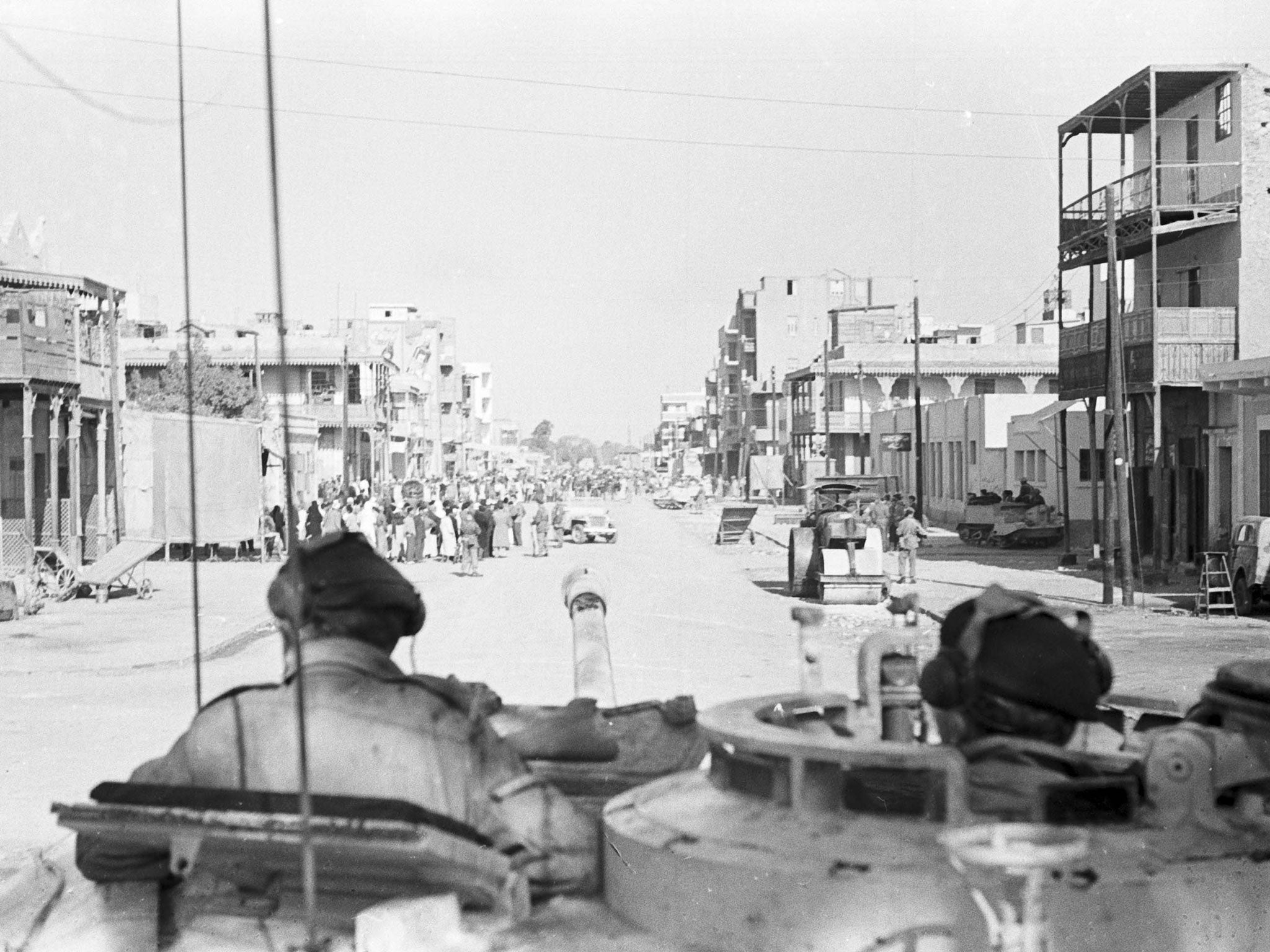The Automobile Club of Egypt by Alaa al-Aswany; trans. Russell Harris, book review
Alaa al-Aswany retreats from the chaos of today to evoke a simpler moral landscape

Your support helps us to tell the story
From reproductive rights to climate change to Big Tech, The Independent is on the ground when the story is developing. Whether it's investigating the financials of Elon Musk's pro-Trump PAC or producing our latest documentary, 'The A Word', which shines a light on the American women fighting for reproductive rights, we know how important it is to parse out the facts from the messaging.
At such a critical moment in US history, we need reporters on the ground. Your donation allows us to keep sending journalists to speak to both sides of the story.
The Independent is trusted by Americans across the entire political spectrum. And unlike many other quality news outlets, we choose not to lock Americans out of our reporting and analysis with paywalls. We believe quality journalism should be available to everyone, paid for by those who can afford it.
Your support makes all the difference.In 2002, Alaa al-Aswany published The Yacoubian Building. Its border-crossing appeal propelled the Cairo dentist-turned-novelist into a worldwide renown unmatched by any Egyptian writer since the Nobel Prize-winning Naguib Mahfouz. Aswany paints in broader strokes, with a colourful canvas of salty and spicy character types that recalls the TV soap operas Egyptians adore. Yet he shares with Mahfouz the knack of dramatising the state of his nation through page-turning sagas of family and neighbourhood. Somehow, Aswany combined his fiction not only with dental practice but with a forthright newspaper column. Signed off with the message "Democracy is the solution", it opposed both secular dictatorship and the growing power of the Muslim Brotherhood – for whom, always and everywhere, "Islam is the solution".
For democrats such as Aswany, the aftermath of Egypt's revolution in 2011 proved a time of anguish. In the wake of President Mubarak's downfall, he fought the drift into religious authoritarianism under the Brotherhood-affiliated Mohamed Morsi. Then, like many free-thinkers, he faced a crisis of conscience when, in 2013, General Abdel Fattah al-Sisi overthrew Morsi's Islamist regime. Criticised for supporting another secular strongman, Aswany has since resumed his admirable position as a censorship-prone thorn in the side of the state.
This troubled history may help to explain The Automobile Club of Egypt. In flight from the tormented present, Aswany has returned to a simpler moral landscape. Here, right and wrong, good and evil, wear no mask, and all Egyptians know a hero from a villain. In the years before Nasser's revolution of 1952, Egypt languishes under the twin oppressions of de facto colonial control by Britain and the sybaritic despotism of its grotesque playboy king, Farouk. Overseen by the sneery, arrogant English manager James Wright, and brutally controlled by his thuggish enforcer Alku, the servants at Cairo's elite Automobile Club suffer, joke, intrigue and, finally, revolt. They embody Egypt under this double yoke.
Downwardly mobile Abd el-Aziz Gafaar, who has lost his lands in Upper Egypt, takes a storeman's job at the Club. He dies in harness, leaving both post and plot development to his law student son, Kamel. Around the Gafaar family crowd a host of Cairo figures drawn with Aswany's flair for genial, broad-brush characterisation: part-Dickens, part-EastEnders. They range from Kamel's spirited sister Saleha and thrill-seeking brother Mahmud to Rosa, a kindly Egyptianised Englishwoman with whom Mahmud has a torrid affair, to the vile palace pimp Botticelli, Wright's Jewish mistress (and secret subversive) Odette, and the royal revolutionary Prince Shamel. The melodrama sprawls and bustles, at a pace and with a zest that affirms Aswany's skills as an accomplished entertainer.
This, however, is a consolatory fantasia: a black-and-white fairy tale in which noble, downtrodden Egyptians rise up to cast off foreign overlords and a parasitic ruling class. Those wicked English colonialists, meanwhile, may redeem themselves by going native, like the motherly sex bomb Rosa or Wright's virtuous daughter Mitsy. She "wants to get closer to Egyptians", and falls in love with Kamel as he helps kick-start a revolution at the Club.
Aswany's enjoyable escapism comforts his Egyptian readers, punch-drunk with upheavals. He reminds them of a vanished era of national solidarity. As a sad coda to this retreat into fable, it needs to be recorded that author, agent and US publisher ejected Aswany's first-rate previous translator, Jonathan Wright, on what appears to be the flimsiest of grounds after months of work on the English version of this book. Wright began a lawsuit against Random House, which the publisher settled out of court.
How curious that Aswany should name his fictional English monster "Wright". The replacement translation does not match the standard of Wright's work.
Canongate, £14.99. Order at £13.49 inc. p&p from the Independent Bookshop
Join our commenting forum
Join thought-provoking conversations, follow other Independent readers and see their replies
Comments